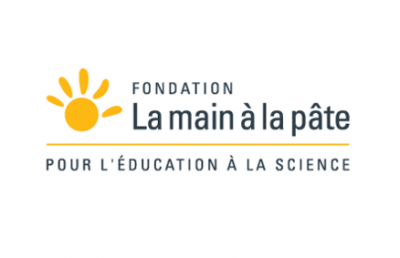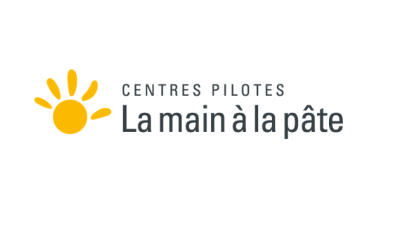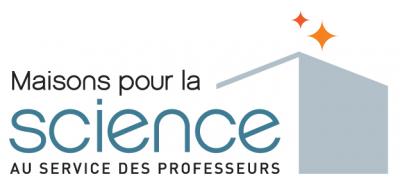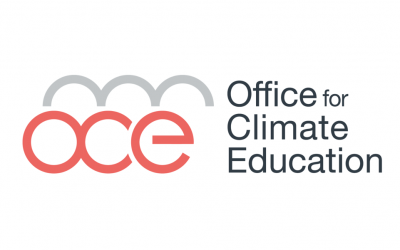Partnerships for reflection and exchange of practices
La main à la pâte is part of a global movement of reflection on the teaching of science, its content, its methods and its aims. To this end, it maintains exchanges with various actors, particularly in Europe. Thus, since 2004, La main à la pâte has coordinated five large-scale European projects which, particularly throughout the 2000s, have helped to establish the challenges of science teaching in the Commission and the member countries of the Union.
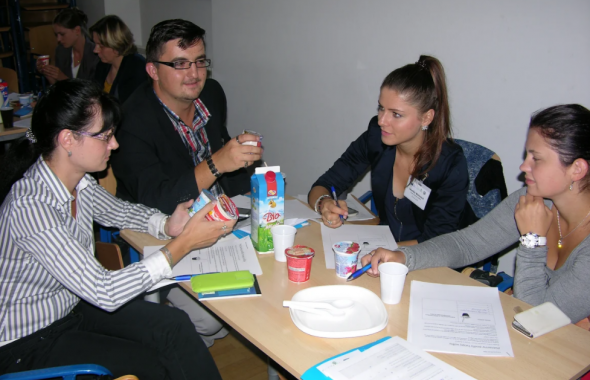
Our participation in the IDoS network (International Dialogue on STEM Education)
Since 2022, the Foundation La main à la pâte has been a member of IDoS (International Dialogue on STEM Education), whose aim is to promote STEM Education at the basic level and to exchange ideas and practices between peers on STEM-related subjects, but also sustainable development and 21st century skills.
Gathering six partner institutions - the Stiftung Kinder Forschen (The little Scientists Foundation), Siemens Foundation, LUMA Center Finland, the Office for Climate Education, the Smithsonian Science Education Center and the Fondation La main à la pâte - the IDoS network meets regularly to share experiences and collaborate on scientific articles on STEM education. A first publication is currently in progress, focusing on impact-oriented networks and their success factors in promoting early STEM Education.
> Find out more about the IDoS network, its members and latest news and publications
LINKS (2013-2019): strengthening national professional development networks
Following previous European programs that focused on sharing and modeling good teaching practices, LINKS focused on addressing the structural issues of designing and implementing professional development policies and programs that effectively target teachers' needs.
- What knowledge and skills should be developed in teachers and trainers?
- What kinds of innovations should be made in professional development in terms of content, methods, tools, especially in the context of digitalisation ?
- Who should contribute to teachers' professional development apart from the traditional training actors? In particular, what should be the role of employers and the scientific community ?
These are the questions to which the LINKS project has tried to provide answers or possible answers. In addition, the partners identified another major challenge, namely the commitment of policy makers to support the expansion and sustainability of national professional development strategies. In order to increase this commitment, the partners noted the importance of evidence of programme effectiveness and thus of impact assessment, and provided guidance on this issue as well.
The project was led by a partnership of 9 institutions in Austria, Finland, France, Italy and the UK. All were part of national networks which together represented 120 local professional development actors.
LINKS was supported by the European Union's Erasmus + programme and was awarded the programme's "Good Practice" label by the French Agency.
LINKS project resources
- The full study "Experiences in implementing effective continuous professionnal developmen (PDF 1.86 Mo) and the summary of the study
- « Working with schools"(PDF 2.36 Mo)
- « Working with the scientific community" (PDF 3.64 Mo)
- « Working with employers / companies(PDF 2.20 Mo)
- « Quality assurance and impact assessment" (PDF 3.21 Mo)
- « Creating sustainable alliances and partnerships for professional development"(PDF 3.45 Mo)
Sustain (2013-2016) : Science education facing the challenge of sustainable development
This project aimed to develop resources for teachers and teacher trainers.
Three major ESD themes (food, energy and everyday objects) were explored during this project and resulted in teaching and professional development tools and activities:
Involving a network of 11 institutions involved in teacher education in 10 EU countries, this project was funded by the European Union under the Lifelong Learning Programme.
The Fibonacci project (2010-2013) : a major achievement acclaimed in France and Europe
In order to go beyond the sharing of good practices and ensure an efficient transfer of know-how at the European level, it was necessary to build a model for the dissemination of inquiry-based science education (ISE), provided by intermediary structures (universities, teacher training centres, research institutions, etc.) with successful experience in the local implementation of ISE.
This is what the FIBONACCI project has done thanks to the mobilisation of 12 reference centres -chosen within the cities of the Pollen networks- paired with 24 centres of less advanced level. The latter all received training and mentoring for two years in order to become reference centres capable of supporting new centres in turn.
Transversal work between the partners was also organised around 5 major thematics which were explored during European training sessions and led to guidelines in order to structure a common approach at European level.
The Fibonacci project involved 60 higher education institutions from more than 25 European countries and a total of about 2,500 teachers and 45,000 primary and secondary school pupils. It was supported by the European Union's 7th Framework Programme.
It was awarded the Stars of Europe trophy in its first edition in 2013; this trophy is awarded by the Ministry of Higher Education.
Resources for the Fibonacci projet
The origins (2004-2009) : SciencEduc and Pollen
Two projects funded under the European Union's 6th Framework Programme were coordinated by La main à la pâte : SciencEduc from 2004 to 2006 (5 associated countries) and Pollen from 2006 to 2009 (12 associated "nursery" cities).
The aim of these projects was to compare the methods and actions of the different science education renewal programmes in which some EU countries were involved at the time, to share good practices and to raise awareness at European level of the importance of science education.
These projects, in particular Pollen, had a great impact, as demonstrated at the time by the Rocard report (Science Education Now: a renewed pedagogy for the future of Europe, 2007), which made it a reference programme.
Some of the resources produced at the time are still relevant today and can be of help to any actor wishing to improve science education.
